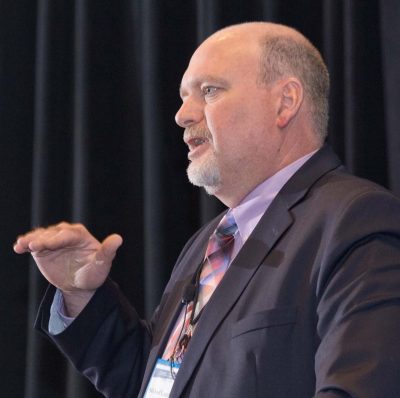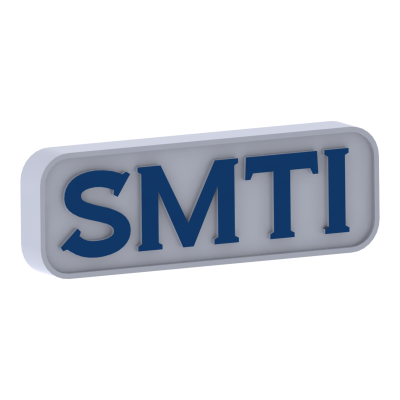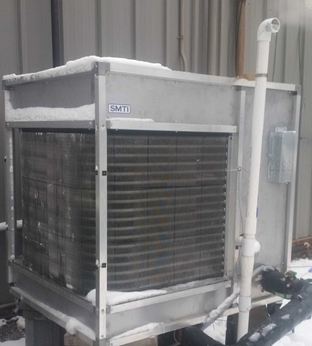(NOTE: This blog was originally posted on FundingSage.com)
Name: Stone Mountain Technologies, Inc.
Location: Johnson City, TN
Website: www.stonemtntechnologies.com
Product / Service Offering: Thermally Driven Heat Pumps
Co-founder Interviewed: Michael Garrabrant, President
Other Key Management Team Members: Scott Reed, VP Strategy & Marketing; Chris Keinath PhD, Director Engineering
This article is part of our Business Startup Spotlight series featuring entrepreneurs and their companies. We hope that these founders’ interviews will inspire and motivate you as you undertake your own entrepreneurial journey.

Pictured: Michael Garrabrant, President
Tell us a little about yourself with a focus on what motivates you.
I am the type that always has to be doing something worthwhile and meaningful in the long run. Endless meetings, red-tape, and indecision are very frustrating. To me, there is nothing like 45-minutes on a lawn mower to clear your mind and trigger a good idea.
When did you establish your company and where did the idea originate?
I had the opportunity to learn and work with absorption heat pumps in the 1990’s. Initially as a graduate student at Ohio State University and then with a start-up that licensed the OSU technology. I found the technology fascinating and “addictive.” Although from a high level it appears simple, getting the details right to make it work well, be reliable and cost effective is very challenging. Also, there are a very select group of individuals globally that understand how to do this.
The start-up I joined in the 1990’s “ran out of gas” because it was targeting the wrong market and applications. I felt that the technology would eventually become a major player in the heating and cooling market when the time was right. In late 2008, circumstances in the market and for me personally aligned, and I decided to give it a go. I knew it would be a hard road, but I began Stone Mountain Technologies.
 What need or needs does your company seek to fill for its customers?
What need or needs does your company seek to fill for its customers?
SMTI is a B2B business model, with our direct customers being gas/oil heating product manufacturers. Indirectly, our customer “base” includes gas utilities, HVAC and water heater contractors, and of course the end-user (building owner or occupant).
Due to steadily increasing DOE minimum efficiency regulations over the last 20 years and technology limitations, conventional gas and oil heating products (furnaces, boilers, water heaters) have very little differentiation left. The products are becoming a commodity, competing more and more on price alone, with market shares evening out among the players. At the same time, electric heat pump technology has advanced rapidly, and has begun to erode market share from gas.
Gas heat pump technology provides a leap in efficiency without sacrificing the comfort gas heating customers are used to. SMTI’s “Thermal Compressor” technology allows the current gas/oil heating equipment manufacturers to offer exciting, new very high efficiency products to their customers, at a much faster pace and with lower risk compared to trying to figure out how to do it themselves from “scratch.”
Gas utilities are mandated to spend a percentage of revenue on efficiency incentive programs. Due to the lack of efficiency differentiation between “good-better-best”, they are struggling to offer incentives that make sense for the consumer. Their core business is also under increasing pressure from climate change driven regulations, especially in California, parts of the Northeast, Canada and Europe; therefore, gas utilities are very excited about the prospect of cost-effective gas heat pumps entering the market and have provided a variety of support, including financially.
What is the one thing that sets your company apart from its competitors?
SMTI has a unique combination of specific market, technology and manufacturing know-how.
 What was the biggest challenge you faced while getting your company up and running, and how did you overcome it?
What was the biggest challenge you faced while getting your company up and running, and how did you overcome it?
Our biggest challenge was seed funding. Our space is not conventional Angel or VC friendly. Also HVAC/water heating is not “sexy,” is capital intensive, and the development time-frame is long. Fortunately, the Department of Energy, gas utilities (including European), and several OEMs agreed with our premise and business model. We were able to win non-equity funds to develop the core technology and prove it out in the “real world.” My knowledge of the market and reputation with key players was instrumental in raising the funds.
Are there resources you have utilized that other founders might find compelling or useful?
There is a litany of start-up information and business help available on the web. Much of it is very helpful, but it is often contradictory. To apply the knowledge heavily depends on what market your business is in. My advice is to spend evenings and weekends reading and when you think you have read it all start again. Learn to filter out what makes sense for your specific business type and focus.
90% of start-up business advice out there is tailored to technology companies developing an application or SaaS. Good luck if you are a brick-and-mortar or manufacturing company.
What steps have you taken to secure funding for your company and what, if anything, would you do differently if you had to start over?
We felt we needed to have prototypes in the field. Several OEM customers were “significantly interested” to reduce the amount of risk for a Series A investor. We are at that point, and have initially targeted industry strategic partners who know the market very well to lead our Round A, with Angel groups with a “green” focus (fortunately this is a growing segment) filling in the gaps.
Have there been any questions you have had as an entrepreneur of a fledgling startup that you had a particularly hard time finding the answers to?
There are a dizzying array of financial terms and investment vehicles out there. Unless you spend your entire career entrenched in this area, it’s next to impossible to wrap your mind around all of the variations and the impact on your company. Professional investors definitely have a large advantage over the typical entrepreneur.
What challenges, if any, are you grappling with?
The challenge is how we share ownership of the company with key employees without either causing them a horrible (and at-risk) tax penalty or running afoul of IRS and SEC rules. The current laws are not friendly to small privately-held companies with a decent valuation but are still at a high risk stage.
What is the most helpful tip or “hack” you’ve ever learned, stumbled across, or been given?
There is no substitute for being obsessive and working extremely hard. There are no short-cuts.
